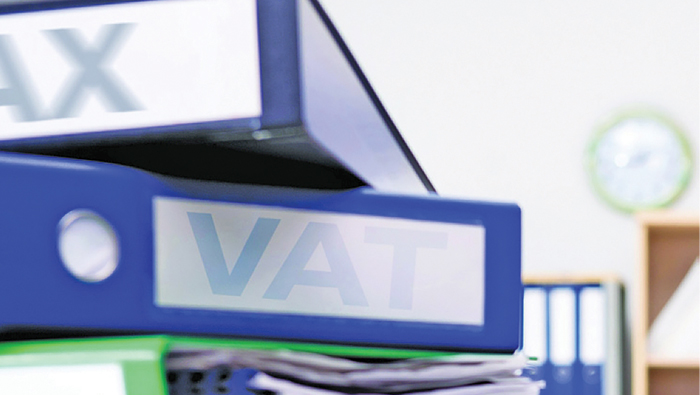
Muscat: Senior economists in Oman have warned companies in the Sultanate to get their practices in line with the Value Added Tax (VAT) policy before it is introduced in the country next year or risk facing penal sanctions for noncompliance.
VAT is likely to be implemented in Oman from 2019, and will see a five-per cent tax added to several goods and services sold within the nation, mainly in the form of non-essential goods and luxuries, although the final list of what will come under the new tax is yet to be determined.
Ahmed Al Hooti, director of economics and research at the Oman Chamber of Commerce and Industry, said companies will be required to pay VAT, whether or not they are ready for it.
Paying taxes
“Companies are getting better at paying taxes, and VAT is coming soon, so this will help the country in the future,” said Al Hooti.
“Whether you are ready or not, you have to pay it. We are asking companies to change their systems and keep VAT available for the next year. The Ministry of Finance and other sectors are spreading awareness about this, but we need more. People want to know what sort of products are covered by VAT, so the government needs to state what these items will be.”
“That the country needs VAT right now is a fact, because it needs resources from many areas,” he added.
“Previously there were only customs duties, and there were a lot of challenges in terms of collecting that tax. But today, you need to think about whether you need the items you will buy in the future. Money is so important today, but people know that they are living in Oman and they have to help the country. It’s not just me or you who has to pay the tax. Everyone has to pay it.”
Pritam Mahure, partner for tax services at Morisons MJS, a global tax firm with offices in Oman, said companies have been preparing for over two years for the implementation of VAT.
“When we look at VAT, it does not just impact the company, but the entire supply chain,” he told the Times of Oman.
“It is not just about the companies, but the vendors and the entire business ecosystem. From a financial perspective, from a treasury perspective, in terms of supplies, sales, the IT department, the legal department, or even human resources, everything will be impacted. This is why most of the large companies in Oman, over the last three to four months, have already started preparing for the move towards VAT.
“This is a new reform that we are talking about and have never seen in this region, so you never know how it is going to impact you.”
“Preparing for VAT is not like a hundred-metre race for which you can prepare quickly,” added Mahure. “It is like a marathon for which you have to start early. You have to have that perseverance and patience and follow-up with so many people to follow VAT analysis. You need to initiate this early, which is what we are telling our clients if they want to have the advantage over their competitors. In the past eight to 10 years, we have helped so many companies across the world become VAT-ready.”
Mahure added that most companies faced VAT preparation challenges on the technological front.
“Most of the challenges are technology-based,” he explained. “Everything is software-dependent, and you need proper VAT-mapping in your accounts. The tax invoice must be generated from your systems. Whether as a person or as a company, whether you are VAT-ready or not, your systems need to be ready. Your very first customer needs to be sold goods along with VAT.”
“If you fail to do so, you will face penal consequences,” said Mahure. “In the UAE, for example, you could face penalties of up to AED5,000 (some OMR500) per wrong invoice, so if you print 10 wrong invoices, the penalty is AED50,000 (OMR5,000). The implications of this could be very high. Your sales team is the face of the organisation, so the people who are facing the customers should be appropriately trained regarding VAT. At the same time, everyone within the organisation has to understand VAT.”
Ali Nyaz, head of audit services for Morisons MJS, said staff training was just as important as preparing company systems ahead of the implementation of VAT.
“The awareness is already there, and firms such as ours have already done our bit in terms of holding seminars and shows and distributing flyers and e-mails so that people know that VAT is coming and are ready for it,” he said. “
Companies need to train their vendors on VAT. We at Morisons are helping them do that. We have trained some 400 vendors, and we do so because if your vendor or supplier gives you a wrong invoice, you will pay the penalty.”
“As we go along with VAT, suppliers will become choosy about who they choose as vendors,” he added. “Going forward, they will first ask if they are registered for VAT, and only then will they proceed.”